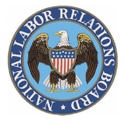
Collective bargaining agreements frequently contain “dues check off” provisions, which require employers to deduct union dues from their employees’ wages, and to then forward those dues to the union. For the past 50 years, these check off provisions were among certain reciprocal contractual entitlements flowing to the union and employer that automatically terminated when a collective bargaining agreement expired. As such, they were not among other contractual provisions that pertained to the wages, benefits and other terms and conditions of employment for the bargaining unit employees that continued indefinitely after the collective bargaining agreement expired until impasse or a replacement agreement was reached. This allowed employers to stop collecting dues for unions once their contract ended.
Read more from Lexology.